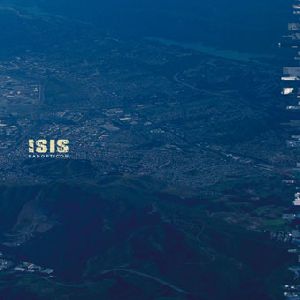
The proggy metal act Isis
You’re hip to packaging. So what do expect from a bunch of white rock guys with guitars and such who call their band Isis? Big hair, right? Maybe portentous lyrics about tombs and moonlight, or even proper Egyptian liturgy, like the death metal chants of the South Carolinan band Nile. But though Isis do play doom metal, of a sort, they are Bostonians with a hardcore background and a sleek design sense and not a lot of hair—guys you’d expect to play alt-metal under a name like Rivet or Lugnut or Cable, which was the name of the alternately lumbering and lacerating bassist Jeff Caxide’s old band. Sabbath, it must be said, does loom large over their mournful riffs. But on the new Panopticon, the followup to 2002’s breakthrough Oceanic, Isis present themselves as totally 21st century guys, with informed worries about technology and cover art devoid of gothic tracery or corpse-paint cartoons.
Unlike the nu-metal brats, Isis knows that staying true to the essential economy of hardcore does not mean you cant go for the Big Picture, either in expansive sound, absurd song length (average here is 8 minutes), or ambitious thematic concept. (Check out that Foucoult quotation!) All you need is to keep some things spare—like Aaron Harris almost tediously restrained drums, or frontman Aaron Turners average vocals, so infrequent or buried in the mix that they render Panopticon an effectively instrumental record.
Isis deserve their name, in other words, because they have achieved a genuinely epic sound, not by aping Scandinavian black metal, but by melting down their own peculiar influences—including, most importantly, the dread commotions of their pals Neurosis—into a modern American hammer of the gods. That said, Isis is a goddess, like the Divine Mother Turner sung about on a tune from 2001’s experimental but basically uninteresting SGNL>05 EP. So why invoke the queen of heaven? Because, though the bands meaty bits are sludgerific, their greatness now turns as much on the softer stuff: layered, pensive, and sometimes downright pretty passages whose mellowness is not, in that tried and true metal formula, simply a palette cleanser for monster riffs.
“In Fiction”, “Syndic Calls”, and “Wills Dissolve”—the latter laced with electronic chittering that would feel at home on Kid A—all begin with slow, vaguely psychedelic space-outs that normal bands put in the middle of their opuses. These probing interplays, which sometimes build and sometimes drift, recall the glacial indi-pluckings of Bedhead or the less atonol drones of Sonic Youth. OK, sometimes Isis sound like Pink Floyd too. But if you want to make an epic soundscape big enough to swallow up the listener, you can do worse that meddle with your metal.



